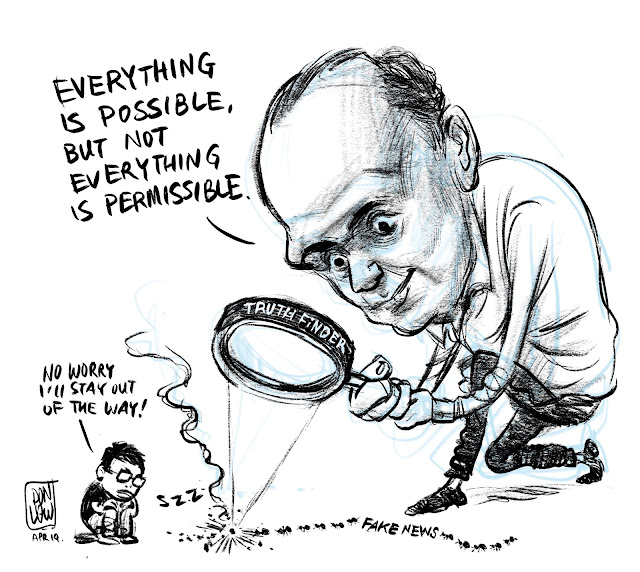POFMA - A bill that tackles online falsehood is passed in Singapore's Parliament
Singapore government has recently passed a bill to tackle online falsehoods on Wednesday May 8, 2019. What this bill does is to give the government power to take legal action against “deliberate online falsehoods” or fake news – when there is dissemination of a false statement of fact, and when such action is deemed in the public interest. According to the law ministry, the bill is not targeting opinion, criticism, satire or parody.
Thus POFMA – Protection From Online Falsehoods and Manipulation Bill.
The tech conglomerate, Google said in a statement: “We remain concerned that this law will hurt innovation and the growth of the digital information ecosystem. How the law is implemented matters, and we are committed to working with policymakers on this process.”
Facebook expressed similar concerns. The social media giant’s Asia-Pacific vice-president of public policy, Simon Milner, said: “We remain concerned with aspects of the new law which grant broad powers to the Singapore executive branch to compel us to remove content they deem to be false and to push a government notification to users.”
In an editorial published in the national broadsheet, AIC’s managing director Jeff Paine wrote that it is believed that the bill “will impact freedom of expression and curtail the rights of individuals, Singaporean or otherwise, to freely express opinions and participate in informed discussions, even debates, that are necessary to ensure executive transparency and accountability,” Mr Paine said that the vague wording of parts of the bill “creates room for a highly subjective application of the law.”
Under the proposed Protection from Online Falsehoods and Manipulation Act (POFMA), a minister can instruct a “competent authority” to take actions ranging from requesting corrections to removing content for what he has determined as a deliberate online falsehood.
A person who does not agree will first have to comply, and then appeal against the order. He will have to apply to the minister who issued the order, and if unsuccessful, file an appeal in court.
A minister has to make a decision within two working days of receiving an application against his direction.
In all, a person disputing the decision will have the opportunity to have the case heard in High Court as early as nine working days after initiating the challenge.
Law and Home Affairs Minister K Shanmugam said on Tuesday that the appeal process will be made fast and simple, with costs “kept very low“.



Comments